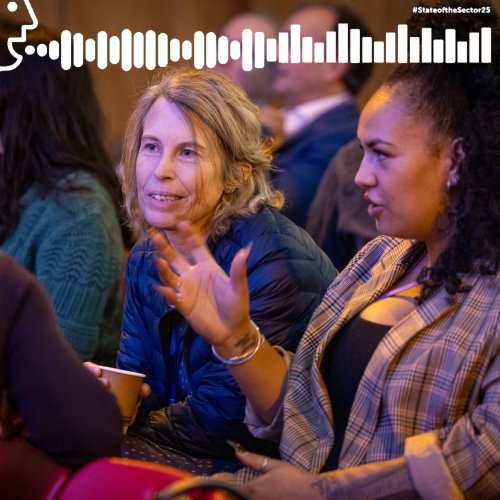When someone you love falls ill you want to look after them. This is not just human instinct – the role of family and carers has long been recognised as a crucial part of helping people to get better.
Now imagine that your son or daughter, husband or wife is in prison and you cannot be there for them as they struggle with cancer, addiction or depression. You are locked out, unable to provide the help that your loved-one needs. This is the situation that tens of thousands of people find themselves in every day.
More than 80,000 people woke up behind bars today, many of whom suffer from poor health. Half suffer from mental health problems, one in three has a drug addiction and the number of prisoners over 60 has tripled in the last two decades.
Our report; Nobody’s Listening, published earlier this year, finds that when families are involved in the process; everyone benefits – prisoners, families, the criminal justice system and the NHS. When the system works well, it can have a positive impact on people’s health, allowing prisoners to access previously unavailable support.
However, the report concludes that families and significant others are too often locked out of a system that does not value their role as carers.
Families bring with them a wealth of experience in caring for their loved-ones. They know what “well” looks like and understand the subtle signs that someone is struggling. To overlook their crucial contribution stores up a range of problems, the ripple effects of which are felt well beyond the prison walls.
This is about treating prisoners and their families with dignity – people in prison have the right to get exactly the same healthcare as everyone else. But it is not just about doing the right thing:
- In the last decade, assaults on prison staff have more than doubled. Providing prisoners with the right healthcare will support safer prisons.
- Four out of five crimes are committed by repeat offenders. Ensuring people get access to mental health and substance misuse treatment significantly reduces the likelihood that they will reoffend.
- The cost of repeat offending and health inequalities cost the UK billions of pounds every year. Better healthcare will help to ease the burden on the taxpayer, generating long-term savings for prisons and the NHS.
We are now getting involved in a range of workstreams with the NHS to address this issue, but we would like to start a sector-wide debate. How can we create systems that involve families more proactively in prison healthcare? What are the professional challenges and obstacles we need to overcome?
Pact would love to hear your thoughts. Get in touch at comms@prisonadvice.org.uk
Andy Keen-Downs, CEO Pact
What's new
Publications
Latest on X
The role is for a leader from an organisation focused on racially minoritised people, with expertise in service delivery, policy, advocacy, or related areas in criminal justice. Racial disparities are present at every CJS stage. This role ensures these voices are central in shaping policy to help address and eradicate them. Apply by Mon 18 Nov, 10am. More info: https://www.clinks.org/voluntary-community-sector/vacancies/15566 #CriminalJustice #RR3 #RacialEquity

